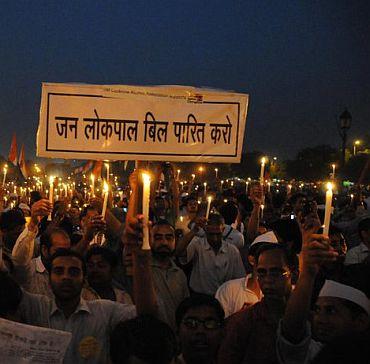
Eight years after publishing a toothless handbook and compendium on citizens' charters in May 2003, the government on Wednesday took the first step of declaring its intent to bring a law for redress of grievances, but only half-heartedly. The draft unveiled is silent on the quantum of punishment to the erring public servants.
All that the draft Citizens Right to Grievance Redress Bill, uploaded on the Ministry of Personnel website inviting suggestions by November 23, provides is "disciplinary proceedings" and an unspecified "lump sum penalty" on those found guilty of a "mala fide" in non-delivery of a service.
Minister of State for Personnel V Narayanasamy was quick to explain that the quantum of punishment will be decided in the rules to be framed after the law is enacted. The chapter on penalties in the draft Bill says the lump sum penalty shall be "at the rate specified from time to time as prescribed in the rules framed under this Act from time to time."
...
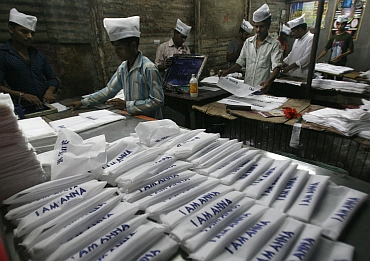
It is certainly the pressure built by the anti-corruption crusade of Anna Hazare this year that the government is moving to provide a framework for enforcing the citizens' charters. It had rejected a recommendation of a parliamentary panel in 2008 to provide legal teeth to the citizens' charters.
The Centre and states have been bringing out citizens' charters concerning each department after a chief ministers' conference in May 1997, chaired by the then Prime Minister Atal Bihari Vajpayee -- it adopted an action plan for an effective and responsive government. The Centre hosted a comprehensive website in 2002 and issued a handbook a year later as a compendium of all such charters as a ready reference for citizens.
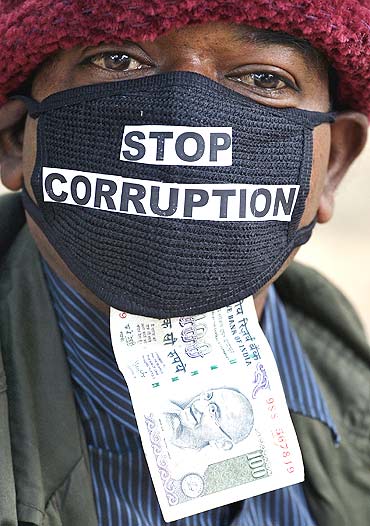
Public servants will certainly shudder from creation of a central public grievance redressal commission and similar commissions in the states. As envisaged in the draft Bill, the commission can inquire suo motu or on complaints in terms of the Prevention of Corruption Act in denial of any public service to the concerned citizens.
Rural Development Minister Jairam Ramesh, who was assigned the task of drafting the Bill by Prime Minister Dr Manmohan Singh, told a joint press conference with Narayanasamy that the proposed legislation is yet another weapon in the government's armour to fight corruption at grassroot levels and inculcate accountability within the public services.
He described it as the fifth "rights'-based" law to look into complaints of violation of the citizens' charters formulated by each government department and to identify liabilities on public servants in case of defaults and import penalties for failure to deliver services or redress grievances in a time-bound manner.
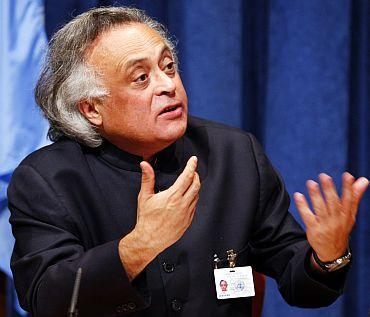
Jairam asserted that the government's commitment to fight corruption was evident with the host of laws coming up for discussion during the upcoming winter session of Parliament from November 22. These include Bills on Lok Pal, Judicial Accountability, Transparency in Public Procurement laws and his Citizens Right to Grievance Redress Bill.
He said the Bill is proposed to be brought as a central legislation under the concurrent list of the Constitution that shall provide a platform for the states to adopt the identical procedures as done in case of the Right to Information Act.
While the legislation will cover police, the minister said a decision to include defence services and other national security apparatus like intelligence agencies would be decided after the public suggestions are received.
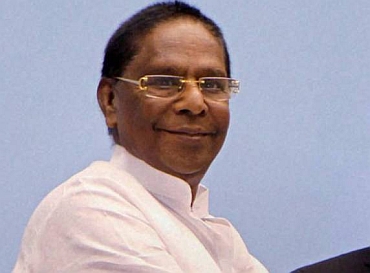
Narayanasamy claimed the Bill provides for an appropriate decentralised and citizen-friendly mechanism. "The citizen's charters will have to be defined by the authorities at various levels, including the panchayats, municipalities, states and the Centre. For every authority, there will be a designated grievance redress officer," he added.
The government's estimate is that over five lakh grievance redress officers around the country would have be designated similar to the RTI officers in each department and there shall be the state and central redress commissions to act as appellate authorities.
As the draft Bill envisages, the first level redress would be within the concerned department by these GROs, the second level by head of the department and then the appeals go to the proposed commissions. According to the proposal law, any complaint, if not addressed within 15 days, will come automatically to head of department.
The draft Bill also empowers the redressal commission to issue directions to the concerned public authority to secure compliance of the citizen charter. It will also force every department to timely create, update and give wide dissemination of the citizens' charter. All proceedings before the commission shall be judicial in nature under Section 193 and 228 of the India Penal Code and the commission shall be deemed to be a civil court for the purpose of Sections 345 and 346 of the Code of Criminal Procedure.
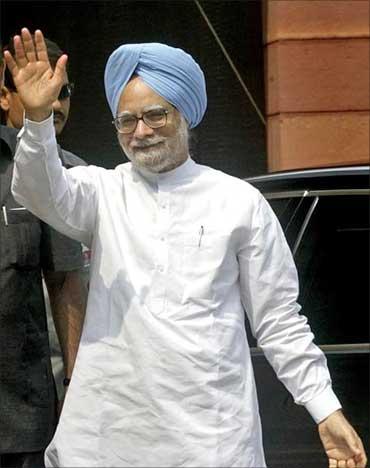
The chief public grievance redress commissioner and a maximum of 10 central public grievance redress commissioners shall be selected by a three-member panel with the prime minister as its chairman, the Leader of Opposition in the Lok Sabha and a sitting judge of the Supreme Court. The names will be finalised from a panel of five to be shortlisted by a search committee and their term will be for five years.
The draft Bill also envisages that the chief commissioners and commissioners should have served as a secretary in the Centre, or as a Supreme Court judge or as a high court chief justice or an eminent person with at least 20 years of work in a social sector and a post-graduate degree in the relevant subject.